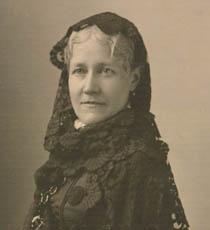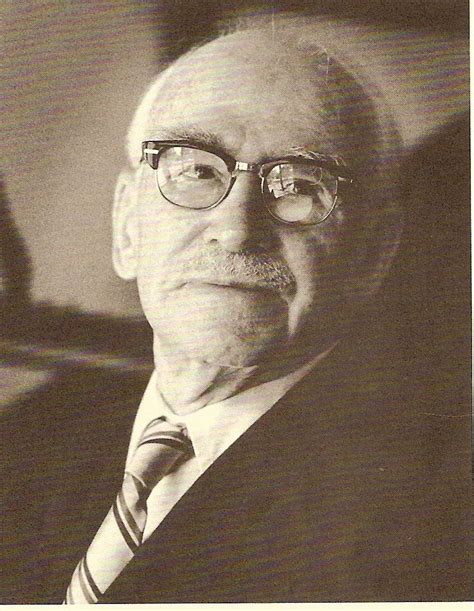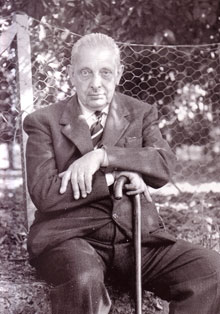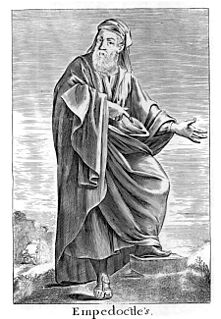A Quote by Andrew Dickson White
After Bruno's death, during the first half of the seventeenth century, Descartes seemed about to take the leadership of human thought... in promoting an evolution doctrine as regards the mechanical formation of the solar system... but his constant dread of persecution, both from Catholics and Protestants, led him steadily to veil his thoughts and even to suppress them. ...Since Roger Bacon, perhaps, no great thinker had been so completely abased and thwarted by theological oppression.
Quote Topics
About
After
Bacon
Been
Both
Catholics
Century
Constant
Death
Doctrine
Dread
Even
Evolution
First
Formation
Great
Had
Half
Him
His
Human
Human Thought
Leadership
Led
Mechanical
Oppression
Perhaps
Persecution
Promoting
Protestants
Regards
Roger
Seemed
Since
Solar
Solar System
Steadily
Suppress
System
Take
Them
Theological
Thinker
Thought
Thoughts
Veil
Related Quotes
He was about to go home, about to return to the place where he had had a family. It was in Godric’s Hollow that, but for Voldemort, he would have grown up and spent every school holiday. He could have invited friends to his house. . . . He might even have had brothers and sisters. . . . It would have been his mother who had made his seventeenth birthday cake. The life he had lost had hardly ever seemed so real to him as at this moment, when he knew he was about to see the place where it had been taken from him.
Since the foundation of the world man has had nearly all the forces on his side, working with him and for him; his intellect has been stimulated, while that of woman has been abased; he has had the run of the world and all quickening and brightening things, while she has sat in the cinders, and until of late been illumined only by his reflected light.
Descartes, the father of modern philosophy ... would never-so he assures us-have been led to construct his philosophy if he had had only one teacher, for then he would have believed what he had been told; but, finding that his professors disagreed with each other, he was forced to conclude that no existing doctrine was certain.
Friedrich Hayek, who died on March 23, 1992 at age 92, was arguably the greatest social scientist of the twentieth century. By the time of his death, his fundamental way of thought had supplanted the system of John Maynard Keynes - his chief intellectual rival of the century - in the battle since the 1930s for the minds of economists and the policies of governments.
The first rules about Islamic law weren't even written down for a century and a half after the Prophet's death, and it was another five centuries, half a millennium, before they assumed anything like a definitive form. So there have always been huge arguments over what Islamic law actually requires. There are four main schools of law in Sunni thought and there's a separate school of law in Shia thought, so these arguments do take place.
What makes a free thinker is not his beliefs, but the way in which he holds them. If he holds them because his elders told him they were true when he was young, or if he holds them because if he did not he would be unhappy, his thought is not free; but if he holds them because, after careful thought, he finds a balance in their favor, then his thought is free, however odd his conclusions may seem.
The Catholics have a Pope. Protestants laugh at them, and yet the Pope is capable of intellectual advancement. In addition to this, the Pope is mortal, and the church cannot be afflicted with the same idiot forever. The Protestants have a book for their Pope. The book cannot advance. Year after year, and century after century, the book remains as ignorant as ever.
I do not think that G. H. Hardy was talking nonsense when he insisted that the mathematician was discovering rather than creating, nor was it wholly nonsense for Kepler to exult that he was thinking God's thoughts after him. The world for me is a necessary system, and in the degree to which the thinker can surrender his thought to that system and follow it, he is in a sense participating in that which is timeless or eternal.
Various accounts of Empedocle's death are given in ancient sources. His enemies said that his desire to be thought a god led him to throw himself into the crater of Mount Etna so that he might vanish from the world completely and thus lead men to believe he had achieved apotheosis. Unfortunately the volcano defeated his design by throwing out one of the philosopher's sandals.
He[Napoleon] had destroyed only one thing: the Jacobin Revolution, the dream of equality, liberty and fraternity, and of the people rising in its majesty to shake off oppression. It was a more powerful myth than his, for after his fall it was this, and not his memory, which inspired the revolutions of the nineteenth century, even in his own country.
He realized now that a lot of the problem had been his own mind, which was usually moving at a speed ten or twenty times that of his classmates. They had thought him strange, weird, or even suicidal, depending on the escapade in question, but maybe it had been a simple case of mental overdrive-if anything about being in constant mental overdrive was simple. Anyway, it was the sort of thing you got under control after a while-you got it under control or you found outlets for it.






































